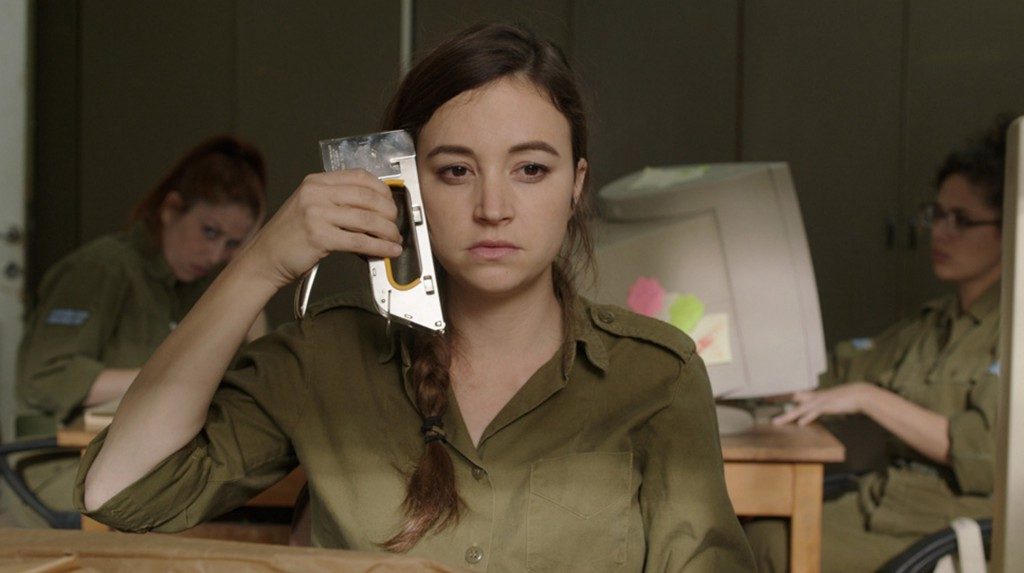Talya Lavie is a director, screenwriter, and comics artist. She studied animation at the Bezalel Art Academy and graduated with merit from the Sam Spiegel Film School in Jerusalem. She has also authored screenplays for various television dramas.
Her short film “Sliding Flora” screened at New York City’s MoMA and in over 40 film festivals worldwide. Her thesis film “The Substitute” received several international awards, notably the Audience Award in the Berlinale, the first-place prize in the Munich International Short Film Festival, and the first-place prize in the Melbourne International Film Festival. Zero Motivation, her first feature film, participated in the Sundance Directors and Screenwriters Lab. (Press materials)
Zero Motivation will debut at the Tribeca Film Festival on April 17.
Please give us your
description of the film playing.
Through the story
of three young women soldiers serving as secretaries, Zero Motivation
provides a comitragic glimpse into Israeli military society. An
administration office in the desert could be the most boring place on earth,
but a staple gun in the first act is sure to go off in the third.
What drew you to this
story?
During my
mandatory military service as a secretary, I dreamed of making an army movie
with the pathos and epic proportions of classic war films, but about the gray,
mundane service that my friends and I had, hardly ever getting up from our
office chairs. I was inspired and amused by the idea of using envelopes, coffee
cups, office intrigues, staple guns, and solitaire in order to create a female
response to the Israeli male-dominated army-film genre.
But above all
that, the military service, which is a very local aspect of Israeli culture,
is used in this film as a platform to tell a universal coming-of-age story
about friendship and young persons’ dreams and fears and need for
self-determination.
What was the biggest
challenge in making your film?
An interesting
challenge was creating a low-budget army film without any actual help from the
army, nor any possibility of using any of the real Israeli army bases for
filming. Assembling all the details and locations to [create] a desert base was
a complex effort that required all the crew’s creativity.
Also, since the
story takes place in 2004, we were surprised to discover how many things had
changed over the last decade, but most were gadget-related, or had to do with
antique computers, etc. The human feelings and personal stories didn’t seem to
change at all.
What advice do you have
for other female directors?
Focus on what
interests you, do everything to excel, and don’t let any irrelevancies stand in
your way. (I could probably say the same thing to a man. But what the hell.)
Name your favorite women
directed film and why.
Me and You and Everyone We Know by Miranda July. It’s beautiful, free-spirited
and filled with imagination.







